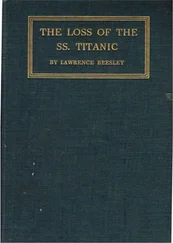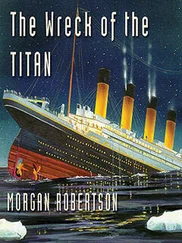Theodore Dreiser - The Titan
Здесь есть возможность читать онлайн «Theodore Dreiser - The Titan» весь текст электронной книги совершенно бесплатно (целиком полную версию без сокращений). В некоторых случаях можно слушать аудио, скачать через торрент в формате fb2 и присутствует краткое содержание. Жанр: Классическая проза, на английском языке. Описание произведения, (предисловие) а так же отзывы посетителей доступны на портале библиотеки ЛибКат.
- Название:The Titan
- Автор:
- Жанр:
- Год:неизвестен
- ISBN:нет данных
- Рейтинг книги:5 / 5. Голосов: 1
-
Избранное:Добавить в избранное
- Отзывы:
-
Ваша оценка:
- 100
- 1
- 2
- 3
- 4
- 5
The Titan: краткое содержание, описание и аннотация
Предлагаем к чтению аннотацию, описание, краткое содержание или предисловие (зависит от того, что написал сам автор книги «The Titan»). Если вы не нашли необходимую информацию о книге — напишите в комментариях, мы постараемся отыскать её.
The Titan — читать онлайн бесплатно полную книгу (весь текст) целиком
Ниже представлен текст книги, разбитый по страницам. Система сохранения места последней прочитанной страницы, позволяет с удобством читать онлайн бесплатно книгу «The Titan», без необходимости каждый раз заново искать на чём Вы остановились. Поставьте закладку, и сможете в любой момент перейти на страницу, на которой закончили чтение.
Интервал:
Закладка:
Chapter VII.
Chicago Gas
Old Peter Laughlin, rejuvenated by Cowperwood’s electric ideas, was making money for the house. He brought many bits of interesting gossip from the floor, and such shrewd guesses as to what certain groups and individuals were up to, that Cowperwood was able to make some very brilliant deductions.
“By Gosh! Frank, I think I know exactly what them fellers are trying to do,” Laughlin would frequently remark of a morning, after he had lain in his lonely Harrison Street bed meditating the major portion of the night. “That there Stock Yards gang” (and by gang he meant most of the great manipulators, like Arneel, Hand, Schryhart and others) “are after corn again. We want to git long o’ that now, or I miss my guess. What do you think, huh?”
Cowperwood, schooled by now in many Western subtleties which he had not previously known, and daily becoming wiser, would as a rule give an instantaneous decision.
“You’re right. Risk a hundred thousand bushels. I think New York Central is going to drop a point or two in a few days. We’d better go short a point.”
Laughlin could never figure out quite how it was that Cowperwood always seemed to know and was ready to act quite as quickly in local matters as he was himself. He understood his wisdom concerning Eastern shares and things dealt in on the Eastern exchange, but these Chicago matters?
“Whut makes you think that?” he asked Cowperwood, one day, quite curiously.
“Why, Peter,” Cowperwood replied, quite simply, “Anton Videra” (one of the directors of the Wheat and Corn Bank) “was in here yesterday while you were on ’change, and he was telling me.” He described a situation which Videra had outlined.
Laughlin knew Videra as a strong, wealthy Pole who had come up in the last few years. It was strange how Cowperwood naturally got in with these wealthy men and won their confidence so quickly. Videra would never have become so confidential with him.
“Huh!” he exclaimed. “Well, if he says it it’s more’n likely so.”
So Laughlin bought, and Peter Laughlin & Co. won.
But this grain and commission business, while it was yielding a profit which would average about twenty thousand a year to each partner, was nothing more to Cowperwood than a source of information.
He wanted to “get in” on something that was sure to bring very great returns within a reasonable time and that would not leave him in any such desperate situation as he was at the time of the Chicago fire—spread out very thin, as he put it. He had interested in his ventures a small group of Chicago men who were watching him—Judah Addison, Alexander Rambaud, Millard Bailey, Anton Videra—men who, although not supreme figures by any means, had free capital. He knew that he could go to them with any truly sound proposition. The one thing that most attracted his attention was the Chicago gas situation, because there was a chance to step in almost unheralded in an as yet unoccupied territory; with franchises once secured—the reader can quite imagine how—he could present himself, like a Hamilcar Barca in the heart of Spain or a Hannibal at the gates of Rome, with a demand for surrender and a division of spoils.
There were at this time three gas companies operating in the three different divisions of the city—the three sections, or “sides,” as they were called—South, West, and North, and of these the Chicago Gas, Light, and Coke Company, organized in 1848 to do business on the South Side, was the most flourishing and important. The People’s Gas, Light, and Coke Company, doing business on the West Side, was a few years younger than the South Chicago company, and had been allowed to spring into existence through the foolish self-confidence of the organizer and directors of the South Side company, who had fancied that neither the West Side nor the North Side was going to develop very rapidly for a number of years to come, and had counted on the city council’s allowing them to extend their mains at any time to these other portions of the city. A third company, the North Chicago Gas Illuminating Company, had been organized almost simultaneously with the West Side company by the same process through which the other companies had been brought into life—their avowed intention, like that of the West Side company, being to confine their activities to the sections from which the organizers presumably came.
Cowperwood’s first project was to buy out and combine the three old city companies. With this in view he looked up the holders in all three corporations—their financial and social status. It was his idea that by offering them three for one, or even four for one, for every dollar represented by the market value of their stock he might buy in and capitalize the three companies as one. Then, by issuing sufficient stock to cover all his obligations, he would reap a rich harvest and at the same time leave himself in charge. He approached Judah Addison first as the most available man to help float a scheme of this kind. He did not want him as a partner so much as he wanted him as an investor.
“Well, I’ll tell you how I feel about this,” said Addison, finally. “You’ve hit on a great idea here. It’s a wonder it hasn’t occurred to some one else before. And you’ll want to keep rather quiet about it, or some one else will rush in and do it. We have a lot of venturesome men out here. But I like you, and I’m with you. Now it wouldn’t be advisable for me to go in on this personally—not openly, anyhow—but I’ll promise to see that you get some of the money you want. I like your idea of a central holding company, or pool, with you in charge as trustee, and I’m perfectly willing that you should manage it, for I think you can do it. Anyhow, that leaves me out, apparently, except as an Investor. But you will have to get two or three others to help carry this guarantee with me. Have you any one in mind?”
“Oh yes,” replied Cowperwood. “Certainly. I merely came to you first.” He mentioned Rambaud, Videra, Bailey, and others.
“They’re all right,” said Addison, “if you can get them. But I’m not sure, even then, that you can induce these other fellows to sell out. They’re not investors in the ordinary sense. They’re people who look on this gas business as their private business. They started it. They like it. They built the gas-tanks and laid the mains. It won’t be easy.”
Cowperwood found, as Addison predicted, that it was not such an easy matter to induce the various stock-holders and directors in the old companies to come in on any such scheme of reorganization. A closer, more unresponsive set of men he was satisfied he had never met. His offer to buy outright at three or four for one they refused absolutely. The stock in each case was selling from one hundred and seventy to two hundred and ten, and intrinsically was worth more every year, as the city was growing larger and its need of gas greater. At the same time they were suspicious—one and all—of any combination scheme by an outsider. Who was he? Whom did he represent? He could make it clear that he had ample capital, but not who his backers were. The old officers and directors fancied that it was a scheme on the part of some of the officers and directors of one of the other companies to get control and oust them. Why should they sell? Why be tempted by greater profits from their stock when they were doing very well as it was? Because of his newness to Chicago and his lack of connection as yet with large affairs Cowperwood was eventually compelled to turn to another scheme—that of organizing new companies in the suburbs as an entering-wedge of attack upon the city proper. Suburbs such as Lake View and Hyde Park, having town or village councils of their own, were permitted to grant franchises to water, gas, and street-railway companies duly incorporated under the laws of the state. Cowperwood calculated that if he could form separate and seemingly distinct companies for each of the villages and towns, and one general company for the city later, he would be in a position to dictate terms to the older organizations. It was simply a question of obtaining his charters and franchises before his rivals had awakened to the situation.
Читать дальшеИнтервал:
Закладка:
Похожие книги на «The Titan»
Представляем Вашему вниманию похожие книги на «The Titan» списком для выбора. Мы отобрали схожую по названию и смыслу литературу в надежде предоставить читателям больше вариантов отыскать новые, интересные, ещё непрочитанные произведения.
Обсуждение, отзывы о книге «The Titan» и просто собственные мнения читателей. Оставьте ваши комментарии, напишите, что Вы думаете о произведении, его смысле или главных героях. Укажите что конкретно понравилось, а что нет, и почему Вы так считаете.










